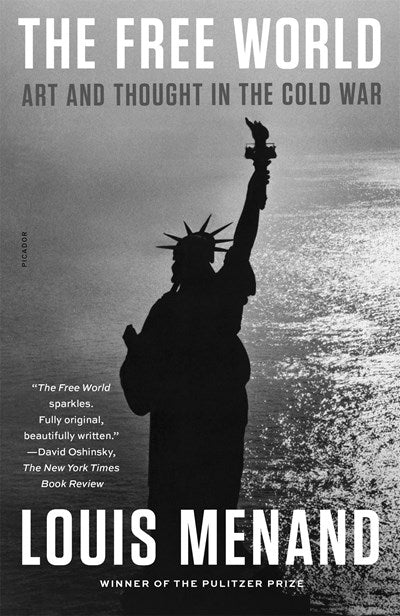In the long-awaited follow-up to the Pulitzer Prize–winning The Metaphysical Club, The New Yorker’s Louis Menand offers the definitive intellectual and cultural history of the postwar years.
The Cold War was not just a contest of power. It was also about ideas, in the broadest sense—economic and political, artistic and personal. In The Free World, the acclaimed Pulitzer Prize–winning scholar and essayist Louis Menand tells the story of American culture in the pivotal years from 1945 to 1970 that shaped our era. How did elitism, formal sophistication, and an anti-totalitarian skepticism of passion and ideology give way to a new sensibility devoted to individual authenticity, freewheeling experimentation, and loving the Beatles?
With the urbanity and insight familiar to readers of The Metaphysical Club and his New Yorker essays, Menand takes us inside Hannah Arendt’s Manhattan salons, Merce Cunningham’s North Carolina dance workshop, and the Memphis studio where Sam Phillips and Elvis Presley concocted a new music for the American teenager. With authority and wit, he examines the postwar vogue for French existentialism, structuralism, and post-structuralism; the rise of abstract expressionism and pop art; Allen Ginsberg’s friendship with Lionel Trilling; James Baldwin's and Susan Sontag’s challenges to the New York intellectuals; and the defeat of obscenity laws and the rise of the new Hollywood.
Throughout, Menand shows that the ferment of the 1960s was not just a rejection of the more straitened sensibility that preceded it but in many ways a natural evolution from it. Stressing the rich flow of ideas across the Atlantic, he also shows how Europeans played an essential role in the canonization of American artists. By the end of the tumultuous Vietnam era, the American government was no longer widely admired around the world, but American culture had become respected and adored. With unprecedented verve and range, The Free World explains how that happened.

